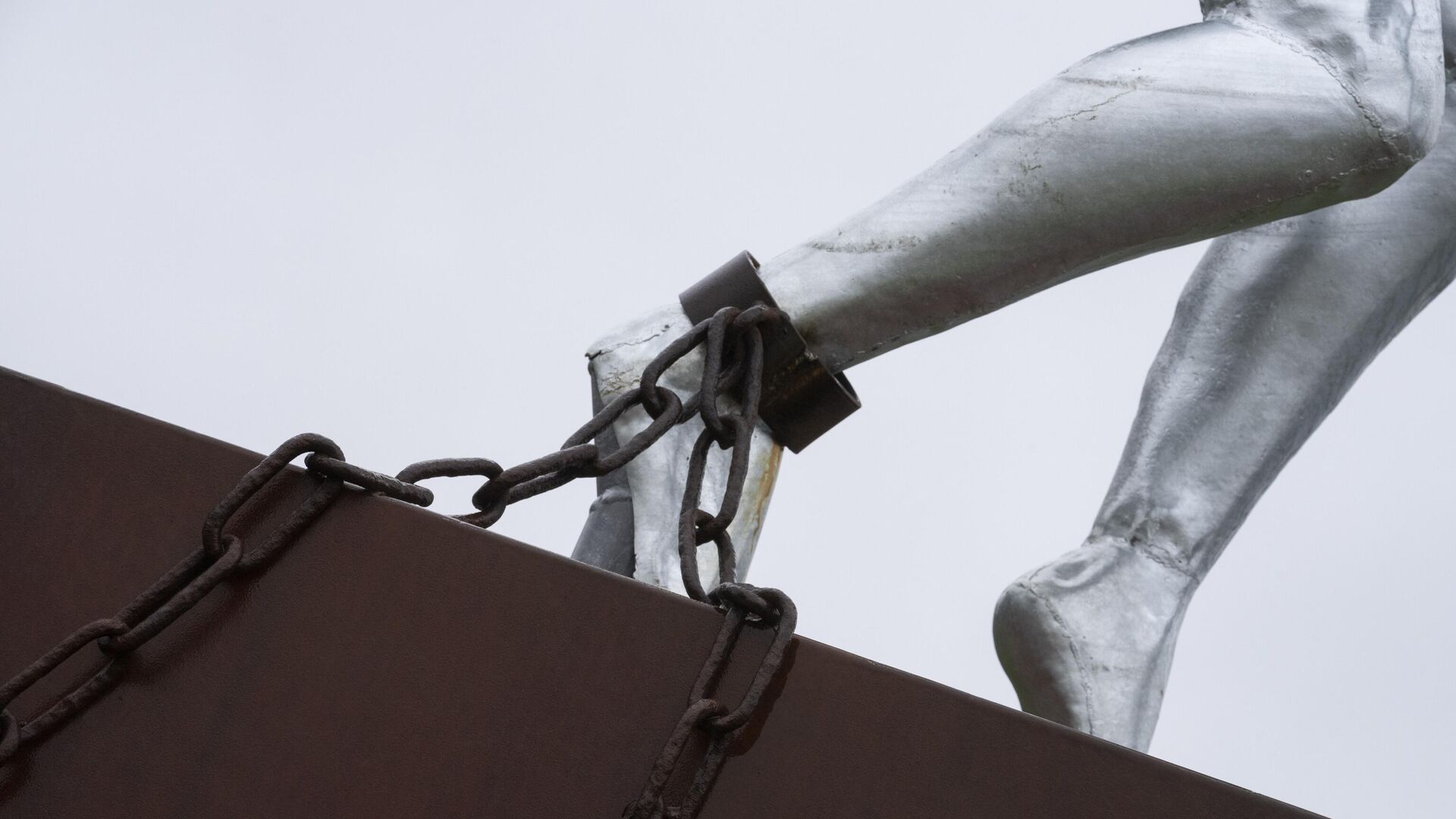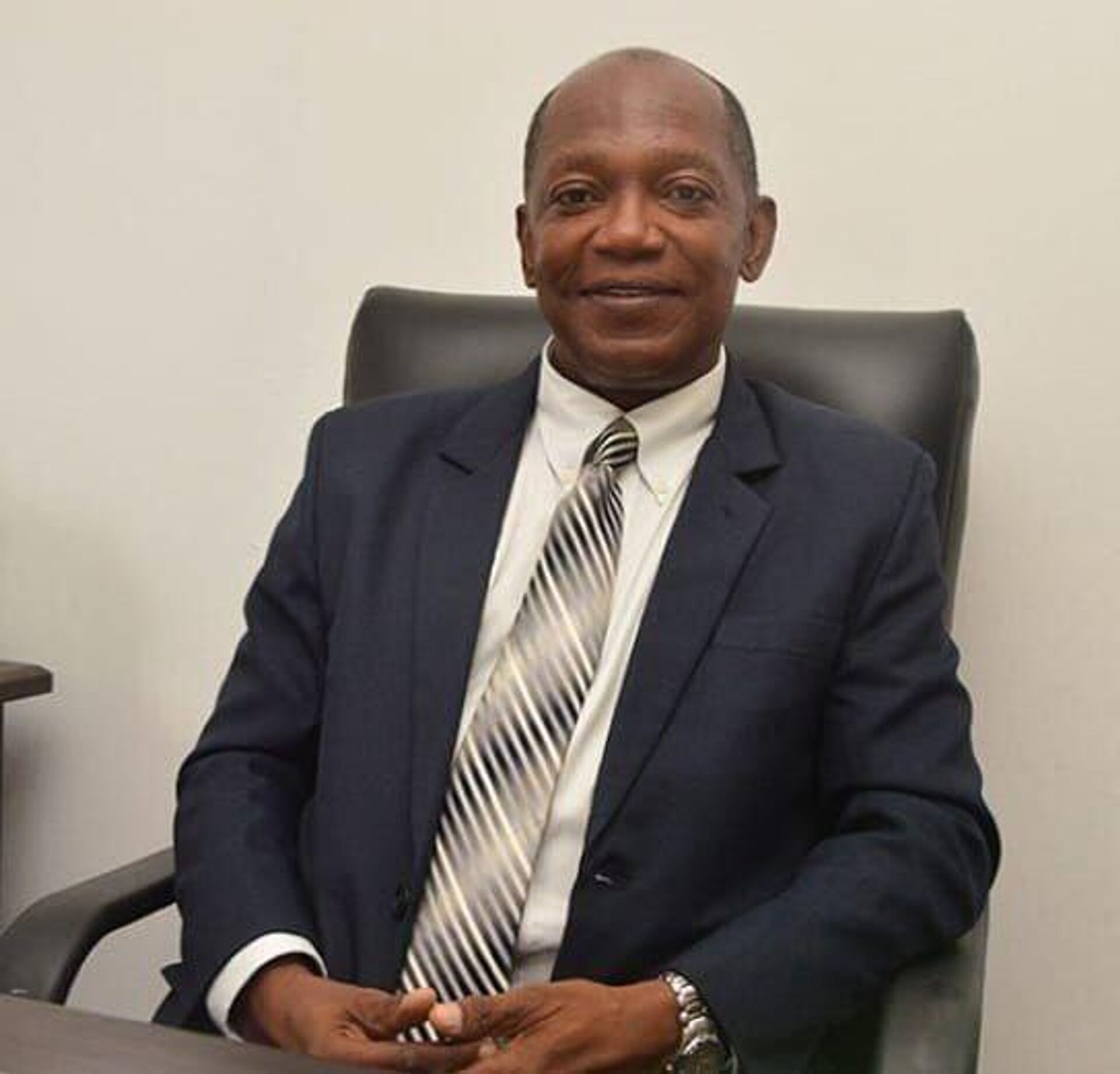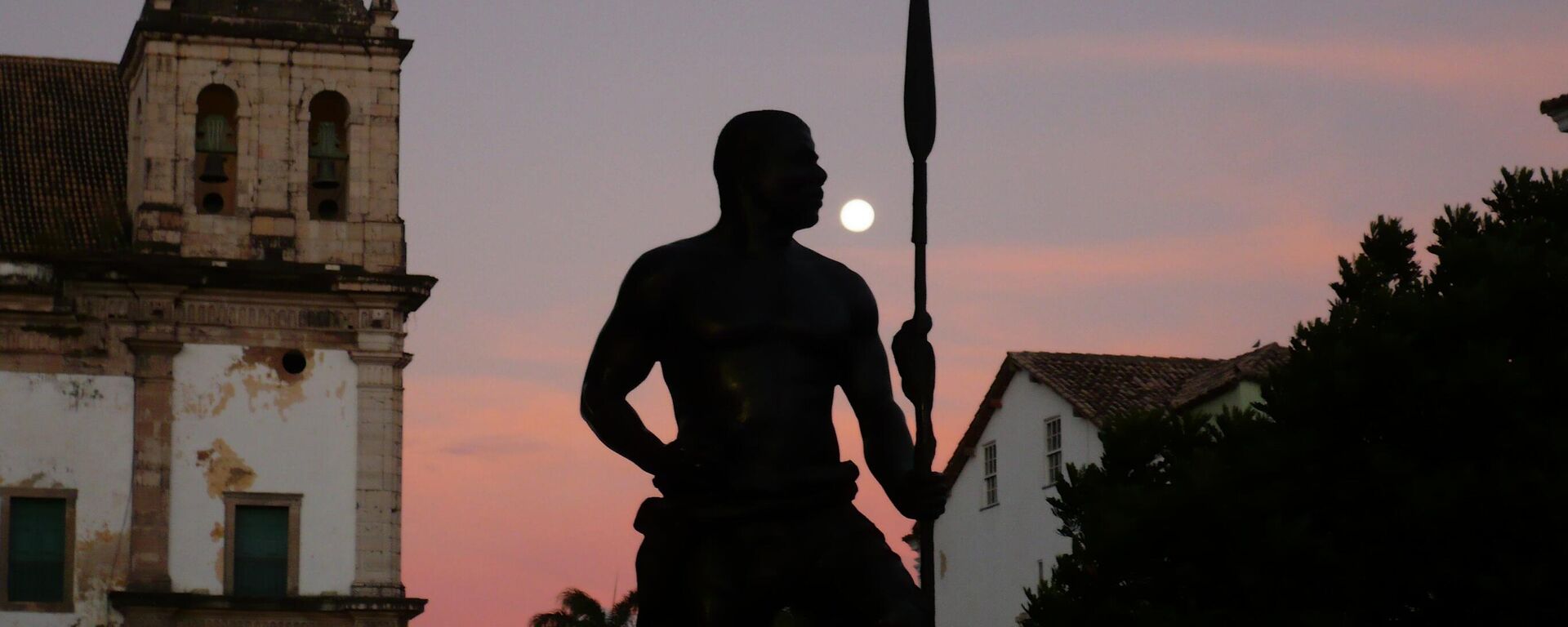https://en.sputniknews.africa/20240410/400-years-of-crime-what-is-tribunal-for-atrocities-of-transatlantic-slave-trade--why-it-matters-1066001004.html
400 Years of Crime: What is Tribunal for Atrocities of Transatlantic Slave Trade & Why It Matters?
400 Years of Crime: What is Tribunal for Atrocities of Transatlantic Slave Trade & Why It Matters?
Sputnik Africa
A proposal to establish a tribunal for atrocities related to the transatlantic slave trade was discussed at a reparations summit in Ghana last year. The summit... 10.04.2024, Sputnik Africa
2024-04-10T10:13+0200
2024-04-10T10:13+0200
2024-04-10T10:13+0200
opinion
france
ghana
united states (us)
african union (au)
west africa
netherlands
reparations
slavery
colonialism
https://cdn1.img.sputniknews.africa/img/07e7/05/1a/1059501428_0:0:3073:1728_1920x0_80_0_0_9f1d1bb77e0f8cc64c2cc737b71c3f96.jpg
Africa and the Caribbean must unite to demand justice and reparations for the atrocities of the transatlantic slave trade, Eric McLaren Phillip, chairperson of the Guyana Reparations Committee, appointed by the President of Ghana and elected Vice Chair of the CARICOM Reparations Commission, told Sputnik Africa.One such tool is the idea of a Nuremberg-style reparations tribunal, an idea that emerged at the Ghana Reparations Summit last November, attended by the African Union and the Caribbean Community, as well as groups from the United States and Latin America.Reflecting on the significance of such a tribunal, the official emphasized the importance of the "internationality" of the reparations process, calling the transatlantic slave trade a "crime against humanity" that has "no time limit."Moreover, as an international platform, the tribunal must bypass the domestic laws of colonizing countries that have "ring-fenced their legal systems" on the path to justice, McLaren Phillip added.He cited the example of the UK, where crimes and colonial crimes cannot be prosecuted until a certain year, and the Netherlands, Germany, and France, countries that "ring-fenced themselves so that it leaves us very few options to pursue the crimes against humanity domestically."Speaking about the response of Western countries to their colonial atrocities, the official noted that some of them apologize but do not want to pay reparations to the former metropolises, while others, like the UK, limit themselves to "regret" instead of apologizing, as this would make them legally liable.Meanwhile, without reparations, the Caribbean and African countries are economically stranded because of colonialism, the official added. He argued that much of the Caribbean's production made Europe rich, while Africa's economic systems were destroyed by slavery and the export of the continent's population.Reparations are relevant to regions facing global challenges such as climate change, serious health problems, poverty, and underdevelopment in Africa and the Caribbean due to slavery and colonialism, McLaren Phillip added.The official concluded that echoes of slavery, capitalism, and colonialism still affect countries in the region today; for example, the debt structure shows "a pattern of capitalism destroying economies, destroying lives, making them unequal," and reiterated the need to work for justice.
https://en.sputniknews.africa/20231120/remembering-slavery-atrocities-black-awareness-day-in-brazil-1063669629.html
france
ghana
united states (us)
west africa
netherlands
germany
Sputnik Africa
feedback@sputniknews.com
+74956456601
MIA „Rossiya Segodnya“
2024
Maxim Grishenkin
https://cdn1.img.sputniknews.africa/img/07e7/0a/17/1063018107_0:0:1104:1103_100x100_80_0_0_03090c85a11f5d2e8a19cf1d989443c9.jpg
Maxim Grishenkin
https://cdn1.img.sputniknews.africa/img/07e7/0a/17/1063018107_0:0:1104:1103_100x100_80_0_0_03090c85a11f5d2e8a19cf1d989443c9.jpg
News
en_EN
Sputnik Africa
feedback@sputniknews.com
+74956456601
MIA „Rossiya Segodnya“
Sputnik Africa
feedback@sputniknews.com
+74956456601
MIA „Rossiya Segodnya“
Maxim Grishenkin
https://cdn1.img.sputniknews.africa/img/07e7/0a/17/1063018107_0:0:1104:1103_100x100_80_0_0_03090c85a11f5d2e8a19cf1d989443c9.jpg
france, ghana, united states (us), african union (au), west africa, netherlands, reparations , slavery, colonialism, british colonialism, germany, history, africa in details
france, ghana, united states (us), african union (au), west africa, netherlands, reparations , slavery, colonialism, british colonialism, germany, history, africa in details
400 Years of Crime: What is Tribunal for Atrocities of Transatlantic Slave Trade & Why It Matters?
Longread
A proposal to establish a tribunal for atrocities related to the transatlantic slave trade was discussed at a reparations summit in Ghana last year. The summit concluded with a commitment to explore legal avenues, including "litigation options."
Africa and the Caribbean must unite to demand justice and reparations for the atrocities of the transatlantic slave trade, Eric McLaren Phillip, chairperson of the Guyana Reparations Committee, appointed by the President of Ghana and elected Vice Chair of the CARICOM Reparations Commission, told Sputnik Africa.
One such tool is the idea of a Nuremberg-style reparations tribunal, an idea that emerged at the Ghana Reparations Summit last November, attended by the African Union and the Caribbean Community, as well as groups from the United States and Latin America.
Reflecting on the significance of such a tribunal, the official emphasized the importance of the "internationality" of the reparations process, calling the
transatlantic slave trade a "crime against humanity" that has "no time limit."
"There has to be some international process because this was an international crime, and this international crime lasted over 400 years, and of course, continued with colonialism and neo colonialism," he remarked.
Moreover, as an international platform, the tribunal must bypass the domestic laws of colonizing countries that have "ring-fenced their legal systems" on the path to justice, McLaren Phillip added.
He cited the example of the UK, where crimes and colonial crimes cannot be prosecuted until a certain year, and the Netherlands, Germany, and France, countries that "ring-fenced themselves so that it leaves us very few options to pursue the crimes against humanity domestically."
"As you look at the Jewish Holocaust and the Nuremberg tribunal, the idea was to pursue something similar to that, because then you would have a chance to circumvent all of these local barriers to justice," the chairperson noted. "Since this is an international crime, we have to address it. So the bottom line is that we need to find a mechanism, a platform that circumvents all these local barriers to justice, and I think a tribunal is one of those options."
Speaking about the response of Western countries to their colonial atrocities, the official noted that some of them apologize but do not want to pay reparations to the former metropolises, while others, like the UK,
limit themselves to "regret" instead of apologizing, as this would make them legally liable.
"While the Dutch have apologized, they still have colonies in Aruba, Bonaire, Curacao, Saint Barts. So how can you apologize and won’t pursue reparatory justice?" McLaren Phillip pointed out. "So absent an international tribunal, absent this architecture that brings things on a level platform, you will have all these games by Germany and France and the Netherlands where they're trying to apologize but not apologize."
Meanwhile, without reparations, the Caribbean and African countries are economically stranded because of colonialism, the official added. He argued that much of the Caribbean's production made Europe rich, while Africa's economic systems were destroyed by slavery and the export of the continent's population.
"I love to say that slavery was the first nuclear bomb that impacted Africa, and racism was the second nuclear bomb, because that's the impact today. So we need Africa and the Caribbean to come together. So we need to bring all of those together in the same courtroom under the same legal framework to address this, because economic sustainability in Africa has been significantly hampered, and in the Caribbean it has been definitely hampered," the chairperson opined.
Reparations are relevant to regions facing global challenges such as climate change, serious health problems, poverty, and underdevelopment in Africa and the Caribbean due to slavery and colonialism, McLaren Phillip added.
"A few years ago, one of our prime ministers [...] mentioned that without reparations, Peruvian civilization is at risk," he reasoned. "Look at the state that Haiti is in right now- almost a failed state because of foreign intervention by both the US and France. So without reparatory justice in the Caribbean, you have a very difficult future."
The official concluded that echoes of slavery, capitalism, and colonialism still affect countries in the region today; for example, the debt structure shows "a pattern of capitalism destroying economies, destroying lives, making them unequal," and reiterated the need to work for justice.
"So the colonialism, the imperialism, the rampant capitalism is still a legacy of slavery and indentureship and colonialism and continues today," he summed it up.




